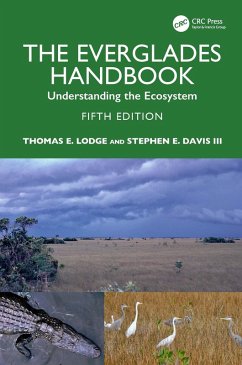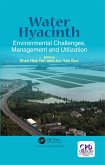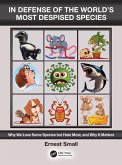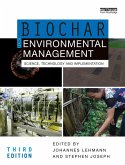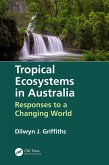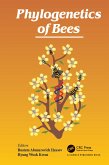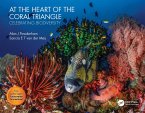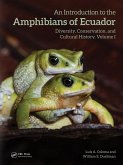Thomas E. Lodge, Stephen E. Davis III
The Everglades Handbook (eBook, ePUB)
Understanding the Ecosystem
142,95 €
142,95 €
inkl. MwSt.
Sofort per Download lieferbar

71 °P sammeln
142,95 €
Als Download kaufen

142,95 €
inkl. MwSt.
Sofort per Download lieferbar

71 °P sammeln
Jetzt verschenken
Alle Infos zum eBook verschenken
142,95 €
inkl. MwSt.
Sofort per Download lieferbar
Alle Infos zum eBook verschenken

71 °P sammeln
Thomas E. Lodge, Stephen E. Davis III
The Everglades Handbook (eBook, ePUB)
Understanding the Ecosystem
- Format: ePub
- Merkliste
- Auf die Merkliste
- Bewerten Bewerten
- Teilen
- Produkt teilen
- Produkterinnerung
- Produkterinnerung

Bitte loggen Sie sich zunächst in Ihr Kundenkonto ein oder registrieren Sie sich bei
bücher.de, um das eBook-Abo tolino select nutzen zu können.
Hier können Sie sich einloggen
Hier können Sie sich einloggen
Sie sind bereits eingeloggt. Klicken Sie auf 2. tolino select Abo, um fortzufahren.

Bitte loggen Sie sich zunächst in Ihr Kundenkonto ein oder registrieren Sie sich bei bücher.de, um das eBook-Abo tolino select nutzen zu können.
This fifth edition is packed cover-to-cover with scientific information about the ecosystem of the Everglades - taking into account how drastically the Everglades has changed. It covers disciplines ranging from ecology, geology, climatology, hydrology, anthropology to conservation biology.
- Geräte: eReader
- mit Kopierschutz
- eBook Hilfe
Andere Kunden interessierten sich auch für
![Water Hyacinth (eBook, ePUB) Water Hyacinth (eBook, ePUB)]() Water Hyacinth (eBook, ePUB)49,95 €
Water Hyacinth (eBook, ePUB)49,95 €![In Defense of the World's Most Despised Species (eBook, ePUB) In Defense of the World's Most Despised Species (eBook, ePUB)]() Ernest SmallIn Defense of the World's Most Despised Species (eBook, ePUB)49,95 €
Ernest SmallIn Defense of the World's Most Despised Species (eBook, ePUB)49,95 €![Biochar for Environmental Management (eBook, ePUB) Biochar for Environmental Management (eBook, ePUB)]() Biochar for Environmental Management (eBook, ePUB)86,95 €
Biochar for Environmental Management (eBook, ePUB)86,95 €![Tropical Ecosystems in Australia (eBook, ePUB) Tropical Ecosystems in Australia (eBook, ePUB)]() Dilwyn GriffithsTropical Ecosystems in Australia (eBook, ePUB)59,95 €
Dilwyn GriffithsTropical Ecosystems in Australia (eBook, ePUB)59,95 €![Phylogenetics of Bees (eBook, ePUB) Phylogenetics of Bees (eBook, ePUB)]() Phylogenetics of Bees (eBook, ePUB)49,95 €
Phylogenetics of Bees (eBook, ePUB)49,95 €![At the Heart of the Coral Triangle (eBook, ePUB) At the Heart of the Coral Triangle (eBook, ePUB)]() Alan J PowderhamAt the Heart of the Coral Triangle (eBook, ePUB)49,95 €
Alan J PowderhamAt the Heart of the Coral Triangle (eBook, ePUB)49,95 €![An Introduction to the Amphibians of Ecuador (eBook, ePUB) An Introduction to the Amphibians of Ecuador (eBook, ePUB)]() Luis A. ColomaAn Introduction to the Amphibians of Ecuador (eBook, ePUB)51,95 €
Luis A. ColomaAn Introduction to the Amphibians of Ecuador (eBook, ePUB)51,95 €-
-
-
This fifth edition is packed cover-to-cover with scientific information about the ecosystem of the Everglades - taking into account how drastically the Everglades has changed. It covers disciplines ranging from ecology, geology, climatology, hydrology, anthropology to conservation biology.
Dieser Download kann aus rechtlichen Gründen nur mit Rechnungsadresse in A, B, BG, CY, CZ, D, DK, EW, E, FIN, F, GR, HR, H, IRL, I, LT, L, LR, M, NL, PL, P, R, S, SLO, SK ausgeliefert werden.
Produktdetails
- Produktdetails
- Verlag: Taylor & Francis eBooks
- Seitenzahl: 520
- Erscheinungstermin: 11. September 2023
- Englisch
- ISBN-13: 9781000922486
- Artikelnr.: 68461093
- Verlag: Taylor & Francis eBooks
- Seitenzahl: 520
- Erscheinungstermin: 11. September 2023
- Englisch
- ISBN-13: 9781000922486
- Artikelnr.: 68461093
- Herstellerkennzeichnung Die Herstellerinformationen sind derzeit nicht verfügbar.
Thomas E Lodge, Ph.D., is a self-employed ecologist. Born in Cleveland, Ohio, he has B.A. with a major and departmental honors in zoology from Ohio Wesleyan University (1966) and a Ph.D. in biology from the University of Miami (1974). Nurturing his childhood interest in aquatic biology, he worked part-time for the Cleveland Museum of Natural History during high school and college (1959-1966). There, he became an expert on the fishes of northern Ohio, reorganizing and contributing to the museum's preserved fish collection and teaching in its summer educational programs. In graduate school, Dr. Lodge became fascinated with the Everglades, both academically and personally. In addition to publishing magazine articles on the Everglades, he wrote and directed an educational film ("The Everglades Region, An Ecological Study", John Wiley and Sons, 1973), and published on the fishes of the region. After earning his Ph.D., he became an environmental consultant, specializing in wetlands and aquatic ecosystems. He has led numerous environmental projects directly relating to the Everglades, including the development of methodology for evaluating the ecological functions and values of Everglades wetlands to provide compensation for wetland impacts. From 2001 to 2008 he served on the Board of Directors of the Tropical Audubon Society and from 1999 to 2004 was appointed to the U.S. Fish and Wildlife Service's "Multi-Species Ecosystem Restoration Team," which dealt with restoration strategies for listed species in Everglades restoration. From 1998 to 2000, he accepted an Invited Faculty position to teach South Florida Ecology at Florida International University, where The Everglades Handbook was used as a course text. Now mostly retired and living in Asheville, North Carolina, he still does some consulting, recently working to protect the Grassy Waters Preserve, part of the historic Loxahatchee Slough. His professional interest in the Everglades is mirrored in his personal interests. For more than 50 years he has been a regular observer and photographer of Everglades wildlife, his ultimate relaxation.
[Figure 0.2 here] Stephen E. Davis III, Ph.D., is Chief Science Officer of The Everglades Foundation. Born in Dayton, Ohio, Dr. Davis moved to Miami in 1995 to begin his PhD study at Florida International University (FIU) with research focused on the coastal Everglades. Funded by the South Florida Water Management District (SFWMD), his research was focused on how increased freshwater flows through the mangrove ecotone of lower Taylor Slough would influence exchanges of carbon, nitrogen, and phosphorus with Florida Bay. Upon completing his PhD in 1999 and following a brief post-doctoral position, he moved to College Station, Texas in 2001 to become an Assistant Professor of Wetland Ecology at Texas A&M University. In addition to research projects focused on freshwater flow benefits to Texas estuaries and coastal wetlands, Dr. Davis maintained an active Everglades research program while at Texas A&M, including a long-standing collaboration with the Florida Coastal Everglades Long Term Ecological Research Program based at FIU. Shortly after receiving tenure and promotion to Associate Professor, Dr. Davis returned to Miami in 2009 to work for The Everglades Foundation, officially resigning from Texas A&M in 2011. Over the past 13 years with The Everglades Foundation, Dr. Davis has been a staff scientist, Communications Director, Vice President of Communications & Engagement, and now, Chief Science Officer. He oversees a team of scientists focused on advancing Everglades restoration and guides science efforts focused on system-wide hydrologic and ecological modeling, water quality compliance, operations, and restoration project planning. He has more than two decades of multi-PI collaborative research experience and over a decade of communications and facilitation experience. He appears regularly in the media related to Everglades issues, he has authored or co-authored over 70 peer-reviewed science publications, he holds a Courtesy Associate Professor appointment at FIU, serves on the College of Arts, Sciences, and Education's Dean's Advisory Board, and is a Coordinating Editor for the scientific journal Restoration Ecology.
[Figure 0.2 here] Stephen E. Davis III, Ph.D., is Chief Science Officer of The Everglades Foundation. Born in Dayton, Ohio, Dr. Davis moved to Miami in 1995 to begin his PhD study at Florida International University (FIU) with research focused on the coastal Everglades. Funded by the South Florida Water Management District (SFWMD), his research was focused on how increased freshwater flows through the mangrove ecotone of lower Taylor Slough would influence exchanges of carbon, nitrogen, and phosphorus with Florida Bay. Upon completing his PhD in 1999 and following a brief post-doctoral position, he moved to College Station, Texas in 2001 to become an Assistant Professor of Wetland Ecology at Texas A&M University. In addition to research projects focused on freshwater flow benefits to Texas estuaries and coastal wetlands, Dr. Davis maintained an active Everglades research program while at Texas A&M, including a long-standing collaboration with the Florida Coastal Everglades Long Term Ecological Research Program based at FIU. Shortly after receiving tenure and promotion to Associate Professor, Dr. Davis returned to Miami in 2009 to work for The Everglades Foundation, officially resigning from Texas A&M in 2011. Over the past 13 years with The Everglades Foundation, Dr. Davis has been a staff scientist, Communications Director, Vice President of Communications & Engagement, and now, Chief Science Officer. He oversees a team of scientists focused on advancing Everglades restoration and guides science efforts focused on system-wide hydrologic and ecological modeling, water quality compliance, operations, and restoration project planning. He has more than two decades of multi-PI collaborative research experience and over a decade of communications and facilitation experience. He appears regularly in the media related to Everglades issues, he has authored or co-authored over 70 peer-reviewed science publications, he holds a Courtesy Associate Professor appointment at FIU, serves on the College of Arts, Sciences, and Education's Dean's Advisory Board, and is a Coordinating Editor for the scientific journal Restoration Ecology.
Introductions. Section I Background 1. An Ecosystem Overview-What Is (or
Are?) the Everglades? 2. The Everglades in Space and Time. Section II
Environments of the Everglades Region 3. Freshwater Marshes: Water.
Weather. and Fire 4. Tree Islands 5. Tropical Hardwood Hammocks 6.
Pinelands 7. The Big Cypress Swamp 8. Mangrove Swamps 9. Coastal Lowlands:
Influences of Fresh and Salt Water, Rising Seas...and Hurricanes! 10.
Coastal Marine Waters in the Everglades Flow Path 11. Lake Okeechobee and
the Everglades Headwaters 12. Peripheral Ecosystems of the Everglades.
Section III The Flora and Fauna of Southern Florida. 13. Origins of the
Flora and Fauna14. Invertebrates 15. Fishes 16. Amphibians 17. Reptiles 18.
Mammals 19. Birds IV Synthesis: Processes and Models of the Everglades
Region. 20. Everglades Chemistry - A Primer 21. Ecological Relationships,
Processes, and Models for the Everglades V. Humans and the Everglades 22.
Native Americans and the Everglades 23. Modern Alterations of the
Everglades and their Environmental Impacts 24. Everglades Restoration:
Solving Deterioration. References. Index.
Are?) the Everglades? 2. The Everglades in Space and Time. Section II
Environments of the Everglades Region 3. Freshwater Marshes: Water.
Weather. and Fire 4. Tree Islands 5. Tropical Hardwood Hammocks 6.
Pinelands 7. The Big Cypress Swamp 8. Mangrove Swamps 9. Coastal Lowlands:
Influences of Fresh and Salt Water, Rising Seas...and Hurricanes! 10.
Coastal Marine Waters in the Everglades Flow Path 11. Lake Okeechobee and
the Everglades Headwaters 12. Peripheral Ecosystems of the Everglades.
Section III The Flora and Fauna of Southern Florida. 13. Origins of the
Flora and Fauna14. Invertebrates 15. Fishes 16. Amphibians 17. Reptiles 18.
Mammals 19. Birds IV Synthesis: Processes and Models of the Everglades
Region. 20. Everglades Chemistry - A Primer 21. Ecological Relationships,
Processes, and Models for the Everglades V. Humans and the Everglades 22.
Native Americans and the Everglades 23. Modern Alterations of the
Everglades and their Environmental Impacts 24. Everglades Restoration:
Solving Deterioration. References. Index.
Introductions. Section I Background 1. An Ecosystem Overview-What Is (or
Are?) the Everglades? 2. The Everglades in Space and Time. Section II
Environments of the Everglades Region 3. Freshwater Marshes: Water.
Weather. and Fire 4. Tree Islands 5. Tropical Hardwood Hammocks 6.
Pinelands 7. The Big Cypress Swamp 8. Mangrove Swamps 9. Coastal Lowlands:
Influences of Fresh and Salt Water, Rising Seas...and Hurricanes! 10.
Coastal Marine Waters in the Everglades Flow Path 11. Lake Okeechobee and
the Everglades Headwaters 12. Peripheral Ecosystems of the Everglades.
Section III The Flora and Fauna of Southern Florida. 13. Origins of the
Flora and Fauna14. Invertebrates 15. Fishes 16. Amphibians 17. Reptiles 18.
Mammals 19. Birds IV Synthesis: Processes and Models of the Everglades
Region. 20. Everglades Chemistry - A Primer 21. Ecological Relationships,
Processes, and Models for the Everglades V. Humans and the Everglades 22.
Native Americans and the Everglades 23. Modern Alterations of the
Everglades and their Environmental Impacts 24. Everglades Restoration:
Solving Deterioration. References. Index.
Are?) the Everglades? 2. The Everglades in Space and Time. Section II
Environments of the Everglades Region 3. Freshwater Marshes: Water.
Weather. and Fire 4. Tree Islands 5. Tropical Hardwood Hammocks 6.
Pinelands 7. The Big Cypress Swamp 8. Mangrove Swamps 9. Coastal Lowlands:
Influences of Fresh and Salt Water, Rising Seas...and Hurricanes! 10.
Coastal Marine Waters in the Everglades Flow Path 11. Lake Okeechobee and
the Everglades Headwaters 12. Peripheral Ecosystems of the Everglades.
Section III The Flora and Fauna of Southern Florida. 13. Origins of the
Flora and Fauna14. Invertebrates 15. Fishes 16. Amphibians 17. Reptiles 18.
Mammals 19. Birds IV Synthesis: Processes and Models of the Everglades
Region. 20. Everglades Chemistry - A Primer 21. Ecological Relationships,
Processes, and Models for the Everglades V. Humans and the Everglades 22.
Native Americans and the Everglades 23. Modern Alterations of the
Everglades and their Environmental Impacts 24. Everglades Restoration:
Solving Deterioration. References. Index.
